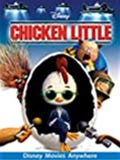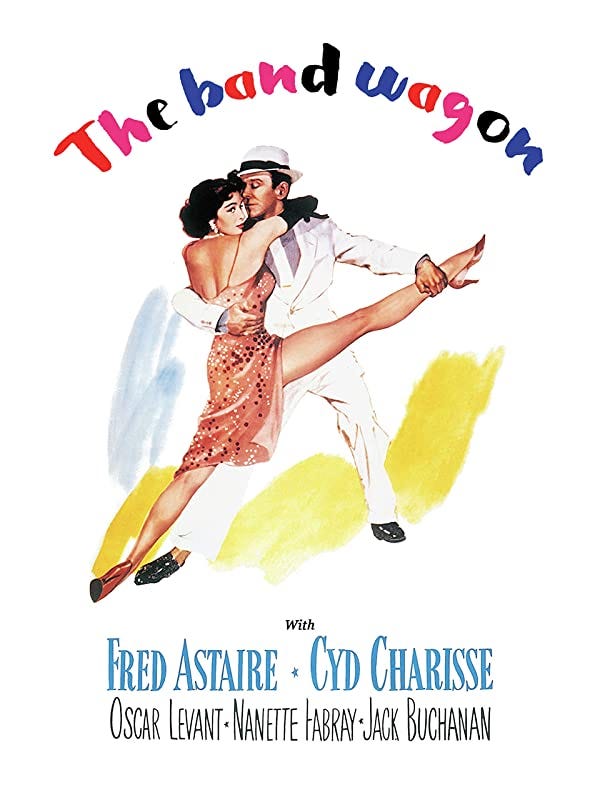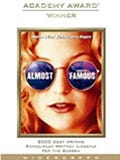Communication Insights From Movies
Tips From Five Films To Help You Communicate Better
Image by L.E. Wilson from RedBubble based on work by Clker-Free-Vector-Images from Pixabay
What do we want from communication?
In general, we communicate because we want to be understood, and we want what we say to be valued enough, or respected enough, to be seriously and deliberately considered by the person or people we are communicating with. If communication is successful, everyone involved should feel heard and better informed in the end. This leads to more enjoyable conversations and stronger relationships.
How can we best communicate with others?
If you are a good communicator, you have empathy. Looking at it from the other direction: you need a sufficient amount of empathy in order to communicate at the highest level. Why? Because communication is about connecting with others. It requires give-and-take, so at a basic level you have to care about the other participants in order to allow them to take the stage and share their thoughts.
How can we develop empathy? It’s just the mental exercise of putting yourself in someone else’s shoes and trying to see the world through their eyes. You can do this even with people you just met. If you take an interest in them by observing signs of what they are experiencing—are they nervous? are they happy? are they distracted?—then you can make a comment that acknowledges or mirrors their behavior. To spur conversation it’s important to make a statement—“Waiting is hard!” “It’s so nice out!” “I hope the team wins!”—rather than ask a question. People, in general, like to share a thought that was sparked as a result of a comment, but most people don’t like being interrogated.
The key, therefore, to meaningful communication is to use empathy to listen to others as if you were in their position trying to be understood. In other words, listen in a way that allows you to imagine, for a moment, that they are correct, which is in fact how they see themselves. But go even further. Try to help them elaborate and fill in details of their thoughts and ideas before giving your response and sharing your thoughts and ideas or critiques. Or as psychologist Carl Rogers, paraphrased by Jordan B. Peterson, stated:
The next time you find yourself embroiled in an argument with someone that’s contentious and uncomfortable say, institute the following rule: you don’t get to respond to the person’s claims until they’ve exhausted that particular claim and […] until you have recapitulated their viewpoint and summarized it in a manner they find acceptable.
Restate what the other person said in the most generous way possible. Steel man, or strengthen, their argument, don’t straw man or trivialize it. A version of this technique is known as “Yes, and…” thinking. It comes from improvisational comedy, where a performer adds on to what someone says, and cooperates with them, in order to continue developing an idea without limitations until it comes to its natural conclusion. For example, the first performer may say, “These street lights are beautiful,” and another performer may respond with, “Yes very nice, and look, there are a lot more behind us. One even seems to be approaching!” Continuing in this way would allow a funny scene to be constructed live right in front of an audience.
However, if the second player responded by saying, “Meh, I don’t like lights,” or “No, those aren’t street lights, they’re police car spotlights,” this would just end the scene without a satisfying end. These statements are unnecessarily confrontational or dismissive, and therefore not empathetic at all. Actually they are unkind because they prevent speakers from fully expressing themselves. There is nowhere else for the conversation to go, which also means that the opportunity for a shared experience is lost. But building on what someone is saying with “Yes, and…” allows the conversation to develop and grow, taking a life of its own, leading to new conclusions and new perspectives that no one expected. It’s a process of discovery for all participants, and it’s how we can learn and change for the better. (See this hilarious interview from the “Panic Attacking Podcast” with comedian Brian Regan for a masterful example of “Yes, and…” thinking.)
Another important skill for effective communication is being able to clearly, and explicitly, state your wants and needs. People are not, in general, good mind readers, so don’t expect or assume anything from anyone. Doing so will likely result in disappointment or frustration. And if you feel annoyed that someone didn’t do what you wanted or expected, figure what you could have said beforehand in order to avoid a similar misunderstanding in the future.
Here are five movies that provide examples of, and insight into, good, healthy, communication:
Chicken Little (2005) is an animated fantasy co-written and directed by Mark Dindal.
Life Lesson: “When all other means of communication fail, try words.”—Anonymous
Chicken Little: You’re never there for me!
Buck Cluck: What?
Chicken Little: You’re never there for me. I mean you were when I won the big game, but not when I thought the sky fell, and not at the ball field, and certainly not now! You’ve been ashamed of me ever since the acorn thing happened and we have to talk about it because Modern Mallard says avoiding closure can lead to molting. And I’m already small, and on top of that I don’t think I could handle being bald!
Buck Cluck: I.. I.. I didn’t realize, son. I never meant to.. The acorn, the sky, I mean the whole.. You’re right. You’re right. Your mom, she was, you know, she was always good with stuff like this. Me, I’m gonna need a lot of work. But you need to know that I love you, no matter what. And I’m sorry. And I’m sorry if I ever made you feel like that was something you had to earn.
The Shaggy Dog (1959) is a fantasy directed by Charles Barton.
Life Lesson: Find someone to talk to about your problems.
Wilby: Pop?
Wilson Daniels (Fred MacMurray) [Wilby’s father]: Yes, Wilby.
Wilby: I’ve got something to tell you. But I’m afraid.
Wilson: Well, you never have to be afraid to talk to me, Wilby. Maybe sometimes I’m a little impatient with you, but that’s because you’re my son. I want you to be something special.
Wilby: Yes, Sir.
Wilson: You just tell me what’s troubling you. I’m sure it can’t be anything too serious. But whatever it is, I promise you, I’ll understand.
Wilby: Really, Pop?
Wilson: You can bank on it Wilby.
Wilby: Shake on it?
Wilson: Certainly I’ll shake on it, Wilby.
The Last Laugh (2016) is a documentary written and directed by Ferne Pearlstein.
Life Lesson: “A person without a sense of humor is like a wagon without springs—jolted by every pebble in the road.” — Henry Ward Beecher
“Whoever has cried enough, laughs.” — Heinrich Mann
Sarah Silverman: “Comedy puts light onto darkness, you know, and darkness can’t live where’s there’s light, so that’s why it’s important to talk about things that are taboo, because otherwise they just stay in this dark place, and they become dangerous. […] When speech gets censored, it’s dangerous because it makes it more taboo.”
The Band Wagon (1953) is a comedy directed by Vincente Minnelli.
Life Lesson: Art does not have to be serious.
Tony Hunter (Fred Astaire): Now look, Gaby. It’s just plain silly that you and I have never sat down and talked this thing out. Here we are the only animals given the greatest means of communication, human speech, and all we do is snarl at each other.
Almost Famous (2000) is a semi-autobiographical drama written and directed by Cameron Crowe.
Life Lesson: Be yourself, always.
Lester Bangs: Oh, man. So you made friends with them? See, friendship is the booze they feed you. They want you to get drunk on feeling like you belong.
William: Well, it was fun.
Lester Bangs: Because they make you feel cool. And hey, I met you. You are not cool.
William: I know. Even when I thought I was, I knew I wasn’t. […] I’m glad you were home.
Lester Bangs: I’m always home. I’m uncool.
William: Me too.
Lester Bangs: You’re doing great, man. The only true currency in this bankrupt world is what you share with someone else when you’re uncool. Listen, my advice to you, and I know you think these guys are your friends, if you want to be a true friend to them, be honest and unmerciful.
People feel accepted and are comforted when we demonstrate sympathy for what they are describing, and in so doing, acknowledge and validate their experiences and perspectives, e.g. “it sounds to me like this is the point you are making…”. To do this, we must listen with an open mind, be flexible, and show interest in someone else’s views. It is only after people feel understood that they can become receptive to “honest and unmerciful” constructive feedback and self reflection. When people don’t feel heard it results in oversensitivity to criticism and intolerance to opposing ideas, which is not a virtue, and it limits free expression.
But it is the free and open exchange of ideas that allows for effective communication, and it’s also the cornerstone of a free society, which becomes repressive if individuals are muffled, or the flow of information is restricted. As Jordan Peterson notes, free speech is identical to freedom of thought, “it’s the mechanism by which we generate the conceptions that allow us to organize our experience in the world […] and so if you’re concerned with the oppressed, let’s say, why in the world would you oppose free speech? It’s the only thing the oppressed have.”
The best weapon against misunderstandings, or misinformation, is more communication, more free speech, not silence, and not censorship (or threats of deplatforming). As Fred Astaire’s character says in the movie The Band Wagon, we have the greatest means of communication, so please talk things out!
Of course if a conversation goes off the rails, then at the very least we can end it with the phrase, “let’s agree to disagree.” It’s a step toward learning to coexist with each other and embodying an ideal of liberty:
“I disapprove of what you say, but I will defend to the death your right to say it.”
― Evelyn Beatrice Hall (paraphrasing Voltaire)
Visit the moviewise catalogue—a searchable database of one sentence movie summaries, movie quotes, and movie wisdom—for movie recommendations.
Also visit the moviewise store. Get a t-shirt, bag, or pillow with your favorite #LifeLesson from a movie. Reply to this or leave a comment below to make a request.














I love the Beecher quote. I agree with all this.I always think of it in terms of courtesy: Why can't we be civil to people we disagree with. I don't know if this is still true, but years ago politicians who had been going at each other hammer and tongs would go off for a drink together afterwards and have a good laugh. Seems to me that that's a nice attitude
Such a wonderful set of lessons!